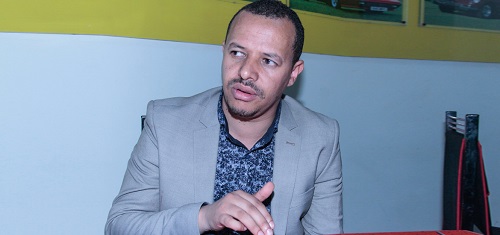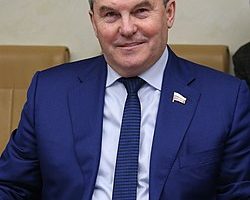
BY GIRMACHEW GASHAW
Today’s guest Gedion G. Jalata was born in Addis Ababa but he rose in Wolega following the relocation of his parents. He attended primary school at Fincha and completed high school education in west Wolega. When he was 11th grader, Gedion came back to Addis Ababa and joined Teferi Mekonen School (TMS). He then gained first and second degree in political science and international relations from Addis Ababa University.
He received a PhD degree from University of Pretoria, South Africa in political science and Produced thesis titled : Ethiopia’s developmental state- the extent of democracy and development. Since then he has been publishing Africa and China articles.
He is one of the few researchers who have broadly studied China and its political and economic relations with African countries. While he worked as a research consultant for eight years with the United Nations Economic Commission for Africa (UNECA),at African mining development centre and other divisions, he was able to publish some 80 research articles on major international journals and dozens out of those focused on China-Africa relations. He was a lecture at Kotebe and Alpha and other private universities.
Now, he is the CEO of his own firm called Center of Excellence International Consult PLC, which he started in 2017. The Ethiopia Herald spent an hour to learn country’s mining potentials, what should do to attract potential investors as well as the status of the sectors within the reform. Excerpts:
As compared to other countries, can we consider Ethiopia rich in its mineral resources? How? What are the major minerals of the country?
Potentially, Ethiopia is mineral rich but not actual. Because according to the World Bank, if you see the report of Africa, every country is categorized under mineral rich countries. The export contributes 15 percent of GDP or 25 percent of the export which I do not think Ethiopia yet qualifies. But still Ethiopia is a member of Extractive Industry Transparency Initiative (EITI) and others. Because there are hard minerals coming from the country like Gold, Opal (the finest opal in the world when compared to Australia), huge reserves of petroleum and natural gas and etc. Potentially Ethiopia is, but actually not yet because of that we did not meet the 25 percent of export and 15 percent of GDP.
How much do you think Ethiopia has benefited economically, in terms of foreign currency from its mineral resources? What are the challenges?
Yes, Ethiopia has benefited. As you know Gold has been traditionally mined in the country for centuries. For instance, if you see the 2012 official report , gold generated around 612 million dollars. However, there has been declining since then. Till 2018, while we were conducting the study, the reversal was only in 2021. This year, I heard that the country earned around 600 million USD. It is contributing in one way or another to the economy.
Even now, it is identified as development pillar for homegrown economy of the government policy. This all indicates that there is potential. If you see it in broader sense, minerals including cements are contributing a lot in terms of construction and other things. So the mining sector is imperative for the development of the country now and the future especially if we succeed in exploiting petroleum and natural gas.
How much of the country’s mineral resources are studied or explored and ready for development?
What I observed was the Ethiopian Geological Survey has conducted a lot of studies and identified the minerals pretty much. However, advanced studies, backed by technology is highly needed in order to identify these minerals as the country is surrounded by mineral rich countries such as South Sudan and others. Even Uganda has discovered oil. The neighboring countries are rich in mineral resources. That means we are also close to Arabian countries where we can find huge reserve of minerals including oil. By far, the country could find the largest oil deposit of minerals but further exploration is required. However, we witnessed new discoveries like opal. We have huge reserve of Gold, marbles, construction materials as well as oil and huge reserve of natural gas.
As we know, mineral resources, especially the precious ones, are scarce. What should be done to ensure sustainable development in areas where mineral extracted?
The Africa Mining Vision (AMV) argues that the mining sector by itself will not contribute for the development effort of the nation rather backward and forward linkage of the mining sector with the rest of the economy is important. In some countries, US, UK, Norway, Australia Botswana and South Africa; the mining sector is contributing a lot for their early age of industrialization.
As it is the source of conflict, the sector is a curse rather than a blessing especially for most African countries due to deprived management system of these countries. Had there been appropriate policies and institutions that can harness the potential, it can contribute a lot but still there are differences.
For instance, I visited Botswana twice in 2015, 2019. They were trying to develop the diamond sector as the saying goes ‘diamond made Botswana’ or modern Botswana since the discovery of the country which follows a developmental state model. Since the discovery of diamond, the country has developed well. However, they had a challenge as the diamond was cut and polished in UK. In my second visit, I witnessed that diamond is cut and polished in Botswana.
The same thing has happened in South Africa. It is one of Africa’s mineral rich countries. You can find diamond, gold and several mineral resources. They developed the sector as there is negotiation and value addition. Unless value added on them, minerals including oil are considered as a raw material like coffee and other commodities that are exported on cheaper
price. Nevertheless, Botswana, like South Africa has good experience in reaping benefit from value addition. Beneficiation means creating benefits at different levels within the mining industry. Most of the time, this value addition is created jobs outside of the country and that is a great challenge for a number of African countries.
What are the major challenges in properly exploiting the country’s mineral resources? How do you see the impacts of human resource, technology, political and capital as factors?
Yes. All of them, I may say. In the national study we contacted on the prevention of corrupt practices in the mining sector. We found around four or five major findings. One is the challenge of good governance in public offices, mainly at local governments. Regional and public offices affected the sector. Though government bodies are the main regulatory body in the mining sector, they highly involve in corrupt practices in the 18 value chains on which we conducted studies.
Second, there is no proper environment impact assessment conducted. They just copy and paste. We don’t have a regulatory body that can check. Environment impact assessment is not conducted. Once it is conducted it is not verified by the relevant government authority. The government does not conduct due diligence.
However, proper due diligence is imperative to exploit minerals. Mineral exploitation has an adverse effect on the environment due to lack of genuine consultation and negotiation with the community or they are not part of genuine consultation and negotiation. Community interest is not respected in the negotiation.
Due to unfair and non-transparent licensing process, there is rift between mining companies and government officials as well as SMEs and traditional miners. Unethical and unfair process of mining site, contraband activities, tax are some of the challenges. Even with regard to tax we observed that except gold, other minerals are not known by tax authorities including custom staffs. They consider it like stone. So, training must be given for tax as well as custom officials. There is no smooth revenue at federal and state governments.
Corporate social responsibility is not considered, even though companies are expected to do so. That means benefitting the society is imperative as I said earlier mineral exploitation has dual effect in health. So, hospitals and health centers must be established. The community should benefit from the exploitation but they did not get such benefits. These are the major challenge in the mineral value chain in the country.
The third finding is, the sector GDP contribution is declining because of various reasons including the instability in the country and informal transaction and contraband activities. It has been witnessed that contraband activities are carried in all regions, the study conducted. We said again why contraband? We found around seven important points. One is, the price of mineral given at the informal or contraband is higher than national bank though the national bank provides higher price than the international market. This is irony. So, people opt for contraband.
Second, some business people with illegal brokers buy the mineral product and sell it at neighboring countries to get hard currency. Some people have huge reserve of birr in the country which is generated through money laundering and they buy gold, opal and deposit in their house than the money. After we made the study, we suggested for change of currency because some people had huge amount of money in their house. They buy minerals deposit and sell it. The other is, Miners and mining associations are very close to the border of the country which creates a conducive environment for contraband activities in the trade.
The other is legal mineral trade license holders. They engage in contraband activities by colluding with illegal mineral brokers. When police apprehends them they say we have the license. However, they go and sell it in the informal market.
Lack of proper control system by concerned government authorities is the other problem. The law enforcement bodies are not actively hunting the illegal traders and controlling their activities.
How do you see the environmental and public health impact of the mining industry in Ethiopia in terms of preventing existing and possible impacts? What do you think relevant authorities should do?
Yes. In the areas where we conducted this study, we observed huge environmental effect. For instance, if you see Shakiso area, there is water crossing the city. The chemical that comes out of the gold extraction areas has polluted the water which has adverse effect in human beings as well as animals. The same thing has happened in opal excavation areas in Wadla and Delanta . While searching for the mineral these people destroy the mountain. So, rehabilitation mechanism should be in place. By nature, when you exploit minerals it would bring adverse effect in the environment as well as the health of individuals.
How do you see the engagement of foreign companies in the mining industry in Ethiopia? What about the capacity of local mining companies?
It is coming up. However, it is not as such like other countries. I think proactive policy must be designed. The government as well need to regulate the effect on the environment otherwise it would bring unintended outcome as it happens in Shakiso area. But, it is coming up. We have witnessed several companies flow to Ethiopia. They exceeded the revenue of this year to 600 million USD. They are coming but still we need to invite several others to involve in soft minerals like petroleum, natural gas. We need to invite them.
What is the capacity of local miners?
Local miners we witnessed such as cooperatives in Tigray state and other regions are coming up. However, the government should work harder in order to support SMEs as well as individual miners who are law abiding in terms of capital, technology in order to strengthen and upgrade them.
How do you evaluate the effort of the Ethiopian government to attract potential investors (mineral extractors) so as to tap the potential?
Firsts of all, the government has identified it as important pillar in the development of the mining sector in the home grown economy which is good. We also witnessed after the reform, the exploitation in Shakiso was stopped but now it continued which is a good thing which also we have used witness some companies coming and signing contract which is good. However, the government should work hard in terms of ensuring peace and stability in the country as well as improving its working system to further attract these companies as well as having appropriate policies and strategies which must be dynamic in attracting companies and regulating the sector.
For instance, the country has good policy in terms of SMEs, because of bad governance or contraband, it was not successful. So, all these dynamics must be addressed in order to make the most out of the sector.
It is obvious that Ethiopia has prepared a strategic plan for the mining sector? How do you see its implementation?
I did not study the new strategy per se, rather the persistent challenges in the country are telling them. I was invited by the ministry of mining to make presentations for several times to its staff. I was telling no matter the policy is good, we address the challenges observed here. Challenges won’t happen. The government has to address such confrontations. With regard to opal, there is no good policy. For instance, there is no buying and shopping center at the mineral hotspot. As a result, people are forced to sell it illegally.
The government should have open shopping centers for minerals at the local level. So that everybody can buy it officially. Due to that missing element people resort to. And also in terms of regulation, the government has to be strong in terms of punishing those resorts to criminal activities as the linkage is very high. At the moment, it is more informal, if it continues like these it brought huge instability in the country to be more a curse than a blessing.
Have you seen any improvement in the country’s mineral development after the reform?
Yes. I observed. For instance one of the recommendations in this study was, there must be fair tax policy and profit dividend share between the federal and regional government which the government implemented and came up with a new policy. We also suggested to the government to open up whistle blowing. After the study we observed that the mineral sector contribution to the GDP is increasing. There is good improvement but we need to work hard to make the most.
What incentives have been facilitated to attract private investors interested to engage in the sector?
There are incentives from the government like tax exemptions as well as encouraging investors to engage in the sector. The country has used this cadastral system which companies can apply online to promote transparency rather than appearing in person. It is a good practice that we learnt from South Africa. The government should work hard to ensure peace and security as most of the minerals are found in remote areas. Unless there is peace and security in the country, investors won’t be attracted.
In some parts of the country, artisanal mining is gaining momentum. How much do you think it is important in developing the mining industry in the country?
It contributes because as you know most of our youth are under employed. The sector creates job opportunities in terms of SMEs as well as individual miners can contribute a lot. However, in the study we found out that they resort to the informal sector especially to contraband via colliding with government officials at woreda level. There is also a tendency to resist companies these issues must be addressed very well.
Thank you for your time!
It’s my pleasure.
The Ethiopian Herald October 26/2021





